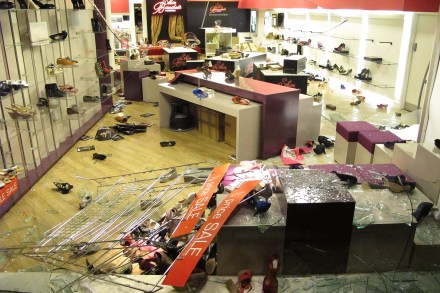When the underbelly roars
When the first riots hit Brixton, I was 12 years old. My mates and I came from south London council estates and, while we were no angels, we certainly couldn’t be described as bad kids. I can’t pretend that I had any real grasp on why people were rioting but I knew it was against the same police who would stop and bug us constantly — even though none of us had either the balls or inclination to commit crime. It may sound like a tired cliche but the police didn’t feel like our protectors. They felt like more like an occupying force. And why? There were countless incidents to













